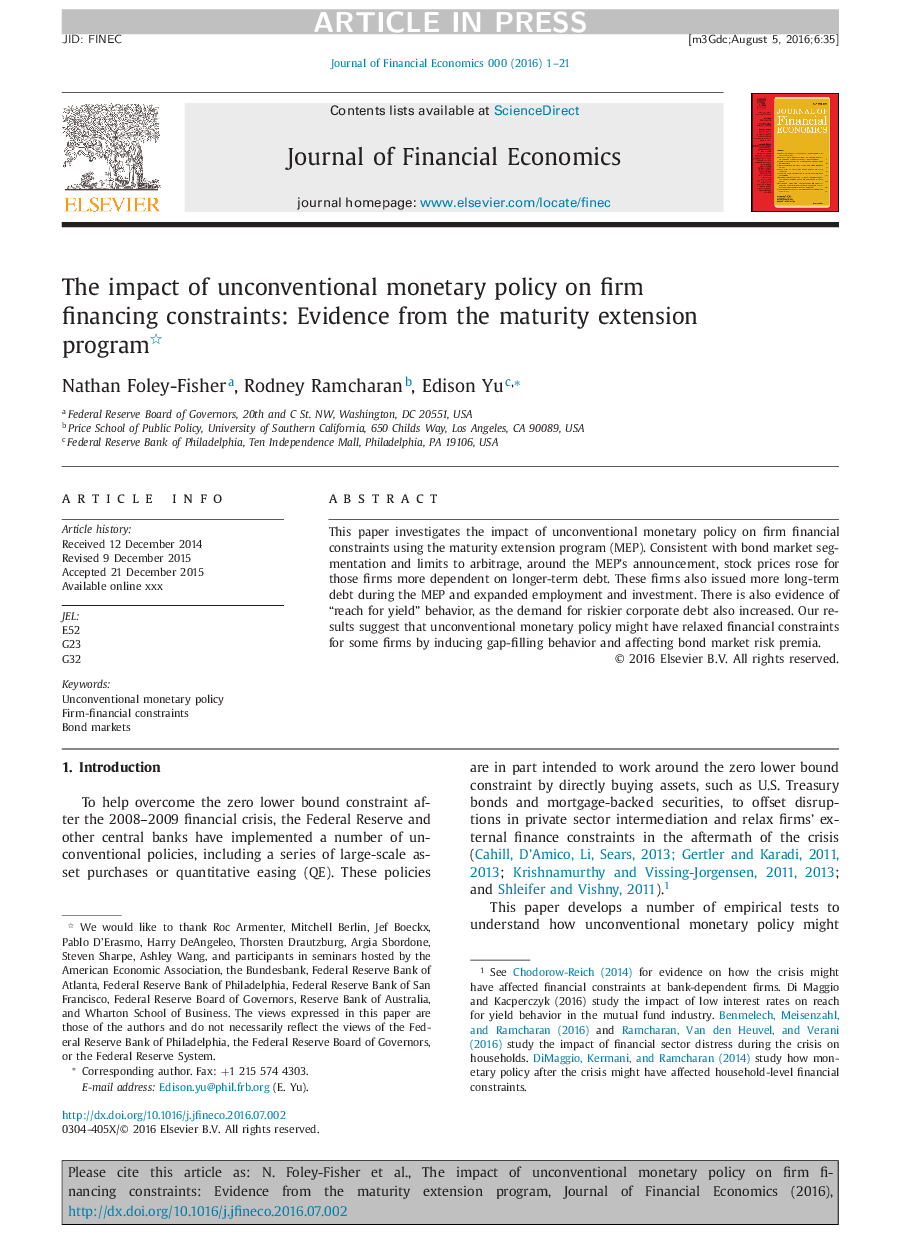| Article ID | Journal | Published Year | Pages | File Type |
|---|---|---|---|---|
| 5100619 | Journal of Financial Economics | 2016 | 21 Pages |
Abstract
This paper investigates the impact of unconventional monetary policy on firm financial constraints using the maturity extension program (MEP). Consistent with bond market segmentation and limits to arbitrage, around the MEP's announcement, stock prices rose for those firms more dependent on longer-term debt. These firms also issued more long-term debt during the MEP and expanded employment and investment. There is also evidence of “reach for yield” behavior, as the demand for riskier corporate debt also increased. Our results suggest that unconventional monetary policy might have relaxed financial constraints for some firms by inducing gap-filling behavior and affecting bond market risk premia.
Related Topics
Social Sciences and Humanities
Business, Management and Accounting
Accounting
Authors
Nathan Foley-Fisher, Rodney Ramcharan, Yu Edison,
